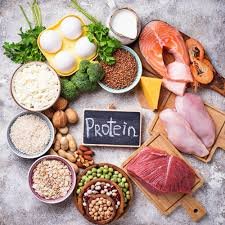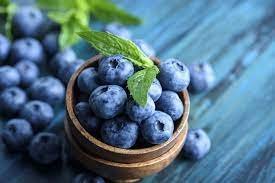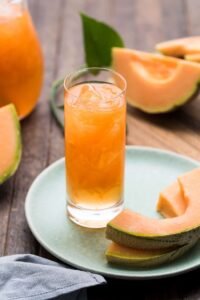Does your pup love to snack on human food? Discover the safest human food for dogs and how to incorporate them into a healthy, balanced diet. Dogs require a diet that is rich in protein and other essential nutrients, such as fats, vitamins, and minerals. These nutrients help to support their overall health and well-being, and a deficiency in any of these nutrients can lead to serious health problems. For example, a lack of protein in a dog’s diet can cause muscle wasting, while a deficiency in certain vitamins and minerals can lead to problems with the immune system, skin, and coat health.
Healthiest and safest Human Food for Dogs | Healthy Diet
Proteins

There are many healthy options for getting protein in your diet. Some of the healthiest and safest human food for dogs that are high in protein include:
- Lean meats: Chicken, turkey, and beef are good sources of protein that can be easily incorporated into a variety of dishes.
- Fish: Fish, especially fatty fish like salmon, tuna, and sardines, is a great source of protein and also contains important omega-3 fatty acids.
- Eggs: Eggs are a convenient and versatile source of protein. They can be eaten hard-boiled, scrambled, or in dishes like omelets or frittatas.
- Beans and legumes: Beans, lentils, and other legumes are high in protein and also contain important nutrients like fiber, iron, and zinc.
- Nuts and seeds: Nuts and seeds, such as almonds, peanuts, and chia seeds, are high in protein and also contain healthy fats and fiber.
- Greek yogurt: Greek yogurt is a good source of protein and also contains probiotics, which can be beneficial for gut health.
- Tofu: Tofu is a good source of protein for vegetarians and vegans. It is made from soybeans and can be easily incorporated into a variety of dishes.
Fruits
Dogs can safely eat a variety of fruits, but some are better for them than others. Here is a list of some fruits that are the safest human fruits for dogs:
Apples

Apples can be a healthy and safest human food for dogs in moderation. They are a good source of fiber and vitamin C and can help freshen a dog’s breath. However, it’s important to remember to remove the core and seeds from the apple before giving it to your dog, as the seeds contain small amounts of cyanide, which can be toxic if ingested in large quantities. The apple skin can also be difficult for some dogs to digest, so it’s best to remove it before offering the apple to your dog. Additionally, it’s important to keep in mind that apples should not make up a significant portion of a dog’s diet, as they are not a complete source of nutrients and should only be given as an occasional treat. It’s always a good idea to consult with your veterinarian before making any changes to your dog’s diet.
Blueberries

Blueberries can be a healthy treat for dogs in moderation. They are a good source of antioxidants, which can help to boost the immune system and protect against certain types of cancer. They are also low in calories and high in fiber, making them a good choice for dogs who need to watch their weight. Blueberries can also help to improve cognitive function in dogs and may have anti-inflammatory properties that can help to reduce joint pain and stiffness.
It’s important to keep in mind that blueberries should only be given to dogs in moderation, as they are not a substitute for a balanced diet. It’s always a good idea to consult with a veterinarian before introducing any new foods to your dog’s diet.
Bananas

Bananas can be a healthy and nutritious snack for dogs in moderation. They are a good source of potassium, vitamin B6, and vitamin C, and can also provide a small amount of fiber. They can be mashed and mixed into your dog’s food or given as a treat.
Bananas can be a good option for the safest human food for dogs as a treat, but they should not make up a significant portion of a dog’s diet. Dogs are carnivorous and require a diet that is primarily made up of meat. Fruits and vegetables should only be given as a supplement to their regular diet and should be given in appropriate amounts based on the size and age of the dog.
Cantaloupe

Cantaloupe is a type of melon that can be a healthy treat for dogs in moderation. It is a good source of vitamins and minerals, including vitamin A, vitamin C, potassium, and beta-carotene. These nutrients can help support a dog’s immune system, promote healthy skin and coat, and maintain proper muscle function.
Cantaloupe can be a refreshing and hydrating treat for dogs, especially in hot weather. It is also low in calories, making it a good option for dogs who are overweight or on a weight-loss diet.
It’s important to keep in mind that cantaloupe should be offered to dogs in moderation, as it is high in natural sugars. Dogs who eat too much cantaloupe may experience digestive issues, such as diarrhea or gas. Cantaloupe can be a healthy and enjoyable treat for dogs when offered in small amounts and with the seeds and rind removed.
Watermelon

Watermelon can be a healthy and refreshing treat for dogs in small amounts. It is a good source of hydration, as well as vitamins A, B6, and C. Watermelon also contains antioxidants, which can help support a dog’s immune system.
It is important to note that watermelon should only be given to dogs in small quantities, as it is high in sugar and can cause gastrointestinal upset if consumed in large amounts. It is also important to remove the seeds and rind, as these can be harmful to dogs.
When introducing watermelon to your dog’s diet, it is a good idea to start with a small portion and observe your dog’s reaction. If your dog tolerates the treat well, you can gradually increase the amount. As with any new food, it is always a good idea to consult with your veterinarian before introducing it to your dog’s diet. This refreshing fruit is high in water and nutrients, including vitamins A and C. Be sure to remove the seeds and rind them before giving them to your dog.
Pineapple

Pineapple is a good source of fiber, vitamin C, and manganese. Be sure to remove the skin and eyes before giving them to your dog.
It’s important to remember that fruit should only be given to dogs in moderation, as it can cause digestive issues if fed in large quantities. It’s always a good idea to consult with your veterinarian before introducing any new foods to your dog’s diet.
Vegetables
Dogs can safely eat a variety of vegetables, but some are better for them than others. Here is a list of some vegetables that are safe and nutritious for dogs to eat:
Carrots

Carrots are a healthy, low-calorie treat for dogs and can provide some important health benefits. It can help to clean your dog’s teeth and freshen their breath when chewed. They are high in fiber, which can help to promote regular bowel movements and prevent constipation. They contain beta-carotene, which is converted to vitamin A in the body. Vitamin A is important for maintaining healthy vision in dogs. Carrots are low in calories and fat, making them a good choice for dogs who need to lose weight or maintain a healthy weight.
Tomatoes

Tomatoes can be a healthy addition to a dog’s diet in small amounts. They are a good source of vitamins and minerals, including vitamin C, potassium, and lycopene. However, it’s important to note that the leaves, stems, and unripe green fruit of tomatoes contain solanine, a toxic compound that can be harmful to dogs if ingested in large amounts. Therefore, it’s important to only feed ripe, red tomatoes to dogs and to remove the stem, leaves, and seeds before feeding them to your dog.
Sweet potatoes

Sweet potatoes can be a healthy addition to a dog’s diet, as they are a good source of vitamins and minerals, including vitamin A, vitamin C, and potassium. However, like all human foods, they should be fed to dogs in moderation as a supplement to, not a replacement for, a balanced diet of high-quality commercial dog food.
When feeding sweet potatoes to your dog, it is important to prepare them properly. Sweet potatoes should be cooked and mashed or pureed, as dogs may have difficulty digesting the raw form of the vegetable. They should also be served plain, without any added salt, spices, or sweeteners.
Broccoli

Broccoli can be a healthy and nutritious addition to a dog’s diet in moderation. It is a good source of fiber, vitamins, and minerals, including vitamins C and K, potassium, and calcium. These nutrients can help support a dog’s immune system, bone health, and overall well-being.
However, it is important to feed broccoli to your dog in moderation. Like all vegetables, they should be given as a supplement to, rather than a replacement for, a nutritionally complete and balanced diet. Additionally, broccoli contains isothiocyanates, which can cause gastric upset in some dogs if consumed in large quantities. It is also important to properly prepare broccoli for your dog by cutting it into small pieces and cooking it until it is soft, as large pieces and raw broccoli can be difficult for a dog to chew and digest.
Green Peas

Green peas are a good source of protein, which is essential for building and repairing tissues in the body. Protein is also important for maintaining healthy muscles and organs. Green peas are a good source of fiber, which can help promote regular bowel movements and prevent constipation in dogs. They are a good source of several important vitamins and minerals, including vitamin C, vitamin K, and manganese. These nutrients are important for maintaining good overall health in dogs.
Green Beans

Green beans can be a healthy and low-calorie treat for dogs, as they are high in fiber and contain many important nutrients such as vitamins A, C, and K, and minerals like iron and calcium. They can also be a good source of antioxidants, which can help protect the body from oxidative stress and support the immune system. Green beans can be a good choice for dogs who are overweight or prone to weight gain, as they are low in fat and calories and can help to satisfy hunger without contributing to weight gain.


